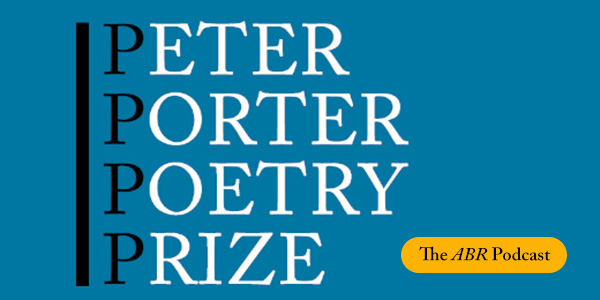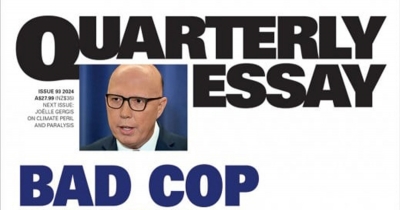Accessibility Tools
- Content scaling 100%
- Font size 100%
- Line height 100%
- Letter spacing 100%
Peter Dutton
The ABR Podcast
Released every Thursday, the ABR podcast features our finest reviews, poetry, fiction, interviews, and commentary.
Subscribe via iTunes, Stitcher, Google, or Spotify, or search for ‘The ABR Podcast’ on your favourite podcast app.
2025 Peter Porter Poetry Prize Shortlist
Read by the poets
This week on The ABR Podcast we feature the 2025 Peter Porter Prize shortlisted poems, as read by the five poets, published in the January-February issue of ABR.
Recent episodes:
This week on The ABR Podcast, Joel Deane considers the black and white politics of opposition leader Peter Dutton. Deane explains that Dutton considers these politics a ‘police trait’ that he developed while in the force, and one that now serves him well in politics, especially when making necessary snap judgements. But will this style endear him to the electorate in the next election campaign, likely fought against Prime Minister Anthony Albanese? Joel Deane is a speechwriter, novelist and poet. Listen to Joel Deane’s ‘The Manichaean Candidate: Peter Dutton’s black and white politics’, published in the September issue of ABR.
... (read more)Bill Hayden, the first Queensland policeman to lead a federal political party, wrote of his experiences as a constable – the violence, the squalor, the tragedy – in his autobiography, Hayden (Angus & Robertson, 1996), and concluded: ‘All of these led me to feel a great anger at the injustices some people had to bear.’ At one point, the former governor-general noted that his ‘humanist’ reaction to injustice reflected his background as the son of a father who was an illegal immigrant and a mother who suffered domestic abuse.
... (read more)This week on the ABR Podcast we review a profile of opposition leader Peter Dutton. Bad Cop: Peter Dutton’s strongman politics by Lech Blaine is the ninety-third issue of the BlackInc Quarterly Essay. In his review of Bad Cop, political biographer Patrick Mullins begins by comparing Dutton to another cop-turned-politician in Bill Hayden. Listen to Patrick Mullins with ‘”Some grotesque Minotaur”: Peter Dutton’s aggressive formation’, published in the May issue of ABR.
... (read more)Bad Cop: Peter Dutton’s strongman politics (Quarterly Essay 93) by Lech Blaine
In 2008, at the Australian zenith of the American custom of rating the first hundred days in power, Kevin Rudd issued a fifty-five-page booklet to mark his new government’s quotidian ton. Inevitably, it proved nothing much at all. Critics said it was both premature and simply validated the critique that Labor under Rudd had ‘hit the ground reviewing’. The Sydney Morning Herald worked out that Rudd had initiated an inquiry every four days, which sounded bad. But after eleven years of John Howard’s government, many things required attention. As Rudd countered, Howard had initiated ‘495 inquiries and reviews in 2005–06 alone’.
... (read more)





